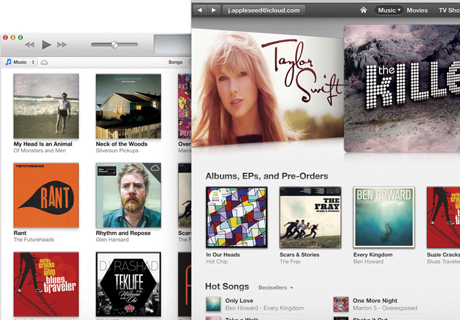Justice Department Seeks to Monitor Apple’s iTunes Store
August 8, 2013
On Friday, the Justice Department asked a federal judge to restrict Apple’s influence in the publishing marketplace and give the government oversight of the iTunes and App Stores. U.S. District Judge Denise Cote in Manhattan last month determined that Apple had conspired with five domestic book publishers to increase e-book prices. The government proposals could provide music, TV show and content owners leverage in negotiating digital distribution. Apple is appealing the ruling.
 “Apple is currently negotiating with owners of video programming about potential new devices and services for the living room. After negotiating with record labels, it recently announced a new music streaming service, iTunes Radio,” reports The Wall Street Journal. “The government seeks to prohibit Apple from reaching agreements with media companies that increase the prices at which Apple’s rivals sell e-books, music, TV shows or movies.”
“Apple is currently negotiating with owners of video programming about potential new devices and services for the living room. After negotiating with record labels, it recently announced a new music streaming service, iTunes Radio,” reports The Wall Street Journal. “The government seeks to prohibit Apple from reaching agreements with media companies that increase the prices at which Apple’s rivals sell e-books, music, TV shows or movies.”
Apple describes the proposal as “draconian and punitive intrusion into Apple’s business, wildly out of proportion to any adjudicated wrongdoing or potential harm.”
The trial earlier this summer involved the steps Apple made in order to gain a position in the e-book market when it released its iBookstore service. The Justice Department is looking for a five-year ban on new e-book distribution contracts that would limit Apple from price competition.
“Rival e-book sellers also would be allowed for a two-year period to sell books to Apple users via e-books apps that are distributed through Apple’s App Store, by providing a link to their websites within their apps,” explains WSJ. “Apple normally charges a 30 percent fee for content purchased within an app, something e-book makers have avoided by simply not selling books within their apps.”
“Under the department’s proposed order, Apple’s illegal conduct will cease and Apple and its senior executives will be prevented from conspiring to thwart competition in the future,” said Bill Baer, assistant attorney general in charge of the Department of Justice’s Antitrust Division.
In response, Apple faulted the Justice Department of overreaching, and that the proposal would change the rules for its App Store, which was unrelated to the case. The company also called the recommendation of a court-appointed monitor to review its business as “wholly unjustified by law or fact.”
Apple also argued that the proposals would provide advantages to Amazon. It recommended that at most, Apple should limit its ability to share information and enter into special pricing agreements with publishers involved in the case.
In her ruling last month, Judge Cote said that the evidence was clear that Apple, despite its claims that it negotiated fiercely and separately with each publisher, was central to conspiracy. The company also faces several separate lawsuits regarding e-book pricing.

No Comments Yet
You can be the first to comment!
Leave a comment
You must be logged in to post a comment.